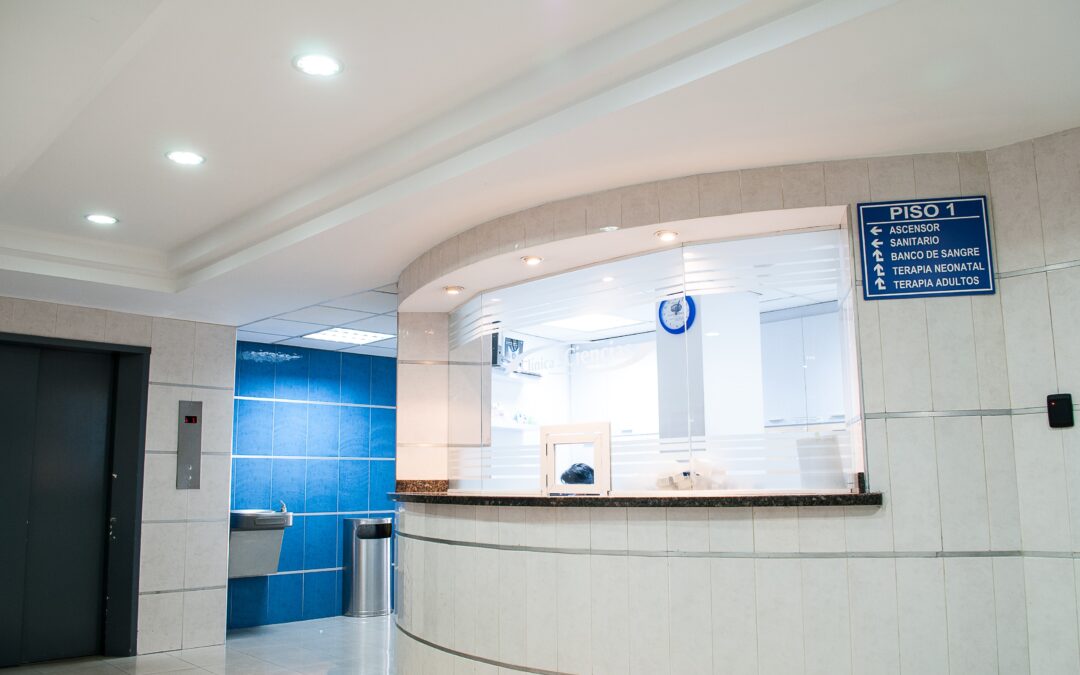For those struggling with addiction, the commitment to begin a journey towards recovery can be a daunting challenge. But it’s never too late or too early for someone grappling with an alcohol or drug disorder to understand and accept that taking proactive steps toward change is essential for establishing lasting sobriety.
One of the most impactful first steps in that process is detoxification–setting up an individual’s path to success in recovery before seeking more comprehensive inpatient treatment. In this blog post, we explore why detox must come first when embarking on a journey toward addiction recovery.
What is Detox and why is it important for addiction treatment
Detoxification, commonly known as detox, is the first step in treating addiction. It involves removing harmful toxins from the body, which accumulate due to drug or alcohol abuse.
Detoxification is crucial in helping individuals begin their journey toward a drug-free life. It enables addicts to safely withdraw from drugs or alcohol while managing the physical and psychological symptoms of withdrawal.
Detox is essential for addiction treatment as it promotes recovery by reducing the impact of any harmful substance on an individual’s body. By undergoing detox, an addict can begin their recovery journey on a clean slate while receiving necessary support and care.
The Benefits of Detox Before Inpatient Treatment
Before starting inpatient treatment, undergoing detox can provide many benefits. Detox is the process of removing harmful toxins from the body that are caused by substance abuse. It can help individuals manage their withdrawal symptoms and make the transition into treatment smoother.
By clearing the body of toxins, patients may also experience a clearer mind which can improve their mental health. Detox also allows for a fresh start physically, emotionally, and mentally. It can help patients establish a strong foundation for their recovery journey and improve their overall well-being.
Overall, detox before inpatient treatment can provide numerous advantages and set individuals up for a successful recovery.
Common Medications used in Detox treatment for addiction
Detox treatment for addiction typically includes medications that help reduce withdrawal symptoms and cravings. These drugs can effectively treat the physical and psychological effects of drug or alcohol abuse.
The most common medications used in detox are:
- Benzodiazepines are mainly used to manage anxiety and agitation
- Alpha-2 Agonists help reduce cravings and withdrawal symptoms
- Antidepressants are typically prescribed to treat the depression associated with addiction
- Naltrexone helps block the effects of opioids and alcohol
- Clonidine is used for reducing anxiety and helping with insomnia.
Each of these medications has been approved by medical professionals as safe and effective for detox treatment.
Different Types of Detox Programs
In addition to detox treatments and medications, there are also various types of detoxification programs available. Detox centers offer a variety of services designed to support individuals in their journey to recovery. These include:
- Medical detox programs: These involve medical supervision and are used to treat more serious cases of addiction.
- Outpatient detox programs: These are less intensive than medical detox but still provide support and structure for those in recovery.
- Natural detox programs: Natural detox programs focus on using natural remedies to help cleanse the body of toxins. This can include homeopathic medicines or natural supplements.
Detox centers often use evidence-based therapies such as:
- Cognitive Behavioral Therapy (CBT): This type of therapy helps individuals identify and manage their thoughts, feelings, and behaviors to reduce addictive urges.
- Dialectical Behavioral Therapy (DBT): DBT is a form of psychotherapy that helps people learn how to cope with difficult emotions in healthy ways.
- Motivational Interviewing (MI): MI is a type of therapy that helps individuals become more motivated to make changes in their lives.
While detox centers are not a replacement for inpatient addiction treatment, they provide an important first step toward recovery.
Signs You May Need To Start a Detox Program
When it comes to addiction recovery, one of the most important steps is detoxification. It’s essential for individuals to be aware of when they should start a detox program and what signs may indicate that it’s necessary. Here are some common indications that you may need to start a detox program:
- You’re experiencing physical withdrawal symptoms from drug or alcohol abuse.
- You’ve experienced cravings for substances that you’re trying to quit.
- You have a history of relapse and need additional help.
- You are having difficulty with daily activities due to substance abuse.
- Your family and friends are concerned about your addiction.
If any of these signs apply to you, it’s important to speak with a healthcare professional and assess whether detox would be beneficial for your recovery.
Preparing For Detox and Inpatient Treatment
Taking the step to seek professional help through detox and inpatient treatment is a courageous decision. Preparing for these processes takes patience, dedication, and a willingness to prioritize your recovery.
It’s essential to reach out to the facility or program ahead of time to get a clear understanding of what you should expect during your stay. It’s also important to take care of any responsibilities at home or work beforehand to alleviate any stressors.
Additionally, packing comfortable clothing and self-care items can help make the experience more comfortable. Remember, this journey will have its challenges, but the reward of a sober and healthy life is worth it. You’re taking a step towards a brighter future, and that in itself is something to be proud of.
Side Effects of a Detox Program
It’s important to be aware that detox can come with some side effects. These may include:
- Anxiety and depression
- Fatigue and nausea
- Headaches and body aches
- Irritability, insomnia, and sweating
While these symptoms can be uncomfortable, they are a normal part of the process and will typically subside in time. If the side effects become too severe or unbearable, however, it is advised to seek medical attention. A healthcare professional can provide advice and assistance to make your detox journey smoother.
Holistic Ways to Mitigate Side Effects
In addition to the medical treatment prescribed by a healthcare professional, there are some holistic methods that you can use to mitigate the side effects of detox. Some examples include:
- Eating balanced and nutritious meals.
- Drinking plenty of water throughout the day.
- Engaging in relaxation techniques such as meditation or yoga.
- Maintaining a regular sleep schedule.
- Exercise regularly to release endorphins and stay active.
- Participating in support groups or therapy sessions.
By utilizing these methods, you can make the detox process more manageable and speed up the recovery process.
Finding the Right Detox Program for Your Needs in Addiction
When selecting a detox program, it’s important to consider your individual needs and preferences. You want to make sure that you choose a facility or program that feels right for you and is equipped to provide the care you need. Here are some tips to help select the best detox program:
- Research different programs available in your area.
- Speak with healthcare professionals and addiction counselors to get their opinions.
- Reach out to rehabilitation centers for more information about specific offerings.
- Determine which facility is best suited for your individual needs and personal preferences.
By taking the time to research and assess your options, you can ensure that you are selecting the right detox program for your recovery journey.
Contact Impact Wellness Center Today
Detox is the first and most important step on the path to long-term recovery from addiction. It helps to remove any lingering toxins from your body as well as the psychological effects of your dependencies.
Withdrawal symptoms can be severe and extremely dangerous, so it’s advisable that detox programs are closely supervised by trained medical professionals who understand what withdrawal looks like and how best to manage its symptoms. Once a person has gone through detox successfully, they should be able to transition more easily into an inpatient regimen.
Inpatient rehab helps to provide individuals with some respite from their addictions while exposing them to therapy and education meant to prevent relapse in the future.
To learn more about our detox and rehab programs, contact Impact Wellness Network today! We’ll help you make the change towards a healthier, happier lifestyle free of addiction.






